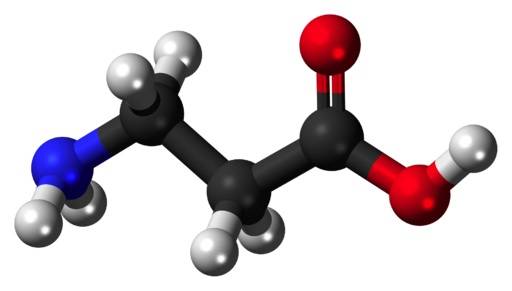If you are training to become an operator or currently are an operator in the Army special operations units, Air Force CCTs, Air Force PJs, Navy SEALs/EOD, or Marine MARSOC, then you can benefit from supplementation. As many operators are in the field for weeks or months at a time, many of the necessary nutrients are lost because of how many calories are burned in one day (which is twice as much as a normal person who works out daily).
If you are training to become an operator or currently are an operator in the Army special operations units, Air Force CCTs, Air Force PJs, Navy SEALs/EOD, or Marine MARSOC, then you can benefit from supplementation. As many operators are in the field for weeks or months at a time, many of the necessary nutrients are lost because of how many calories are burned in one day (which is twice as much as a normal person who works out daily). Not to mention, diet in the field isn’t always ideal. For this article, we will go over supplements that are good to take during bouts in the field or during hard training temporary duty assignments (TDY).
Protein Supplementation
So when it comes to supplementation we will start with whey protein since everyone pretty much knows what whey protein is. Whey is important for operators in that it’s a fast protein source. Whey protein peaks, or is the most effective, at about sixty to ninety minutes after ingestion. This is a great protein to carry in the field as a quick and easy protein source.
Whey protein also has unique biological and health supporting functions and protein fractions that make it anabolic, antiviral, anti-inflammatory, and immune system supportive (the most important quality). Whey protein is also beneficial for replenishing lost amino acids during extreme fieldwork or immediately after the fact. The only weak spot to this supplement is that whey protein does not sustain a person past two to three hours because the protein floods the body with amino acids so quickly that some may be oxidized or wasted.
The second protein source that is important to operators is casein. Casein is a slow-digesting protein source, and once it is ingested and broken down, the amino acids are steady and well maintained. Casein produces a stable elevation of amino acids for up to seven hours. What this means is the amino acids are less likely to be wasted or oxidized.
Casein protein increases protein synthesis to a lesser extent than whey, but reduces whole body protein breakdown. Casein is better for night repair or if meals will be unavailable for more then three hours, which I know many operators can relate to. Usually during long missions or long events in the field, many operators forget to eat or may find that food is not readily available. If some casein powder is on hand, it can be a good substitute for a missed meal. One thing to keep in mind, casein is not ideal as an immediate post-workout protein source.
Carbohydrate Supplementation
I know many people shy away from carbs, but operators burn far more calories than the average person, especially when doing fieldwork, so carbs are essential for operators.
First, we will talk about carbs before a performance. Carbs may help preserve muscle glycogen stores and extend muscular endurance. Glycogen is the stored form of glucose that we keep in our muscles. Therefore, the greatest benefit to consuming carbs before work is if you know your glycogen stores are low to begin with. Carb supplementation is not needed if you know the duration of your work time is going to be short. Carbs can be tricky because both high and low glycemic index (GI) carbs can be used to support training as long as you know your blood glucose level is being maintained. In most cases, it’s good to stick with low GI carbs, like blueberries, apples, broccoli, noodles, or beans. The amount of carbs that should be consumed before work is thirty to sixty grams about thirty to sixty minutes before work.

Carbohydrates during work are great if you know the duration of effort will be long (over an hour) or high intensity or both. Operators usually want to consume a moderate dose of easily digested high GI carbs such as glucose (dextrose), sugar, and maltodextrin. (An easy source is gels, even though many taste nasty, in my opinion.) Again, I do not recommend this unless you know you will be working for more than one hour. These carbs are absorbed by the small intestine at a rate of one gram per minute, so if you drink too much (or eat too many gels), it can cause gastrointestinal distress. The recommendation is 7.5-15 grams of simple carbs every fifteen minutes, or thirty to sixty grams very slowly each hour.
The window for useful carb consumption following work is very short. Ingestion needs to occur right after the work has been completed. Post work carb supplementation is crucial, however, in that it allows for the most nutrient uptake, recovery, and growth. The resynthesis of potential glycogen stores is at its max about thirty to sixty minutes after the work has been completed and is elevated for about two hours. The combination of protein and carbs during the recovery period maximizes protein synthesis rates and retention of glycogen, while minimizing protein catabolism. If operators have carbs right after work is completed, glycogen stores can go back to baseline levels within 24 hours.
Beta Alanine
My last recommendation for supplementation is the amino acid beta-alanine, specifically a time-release formula. Beta-alanine is not used in the synthesis of proteins and its main function appears to be the synthesis of carnosine. Carnosine is important to muscle tissue in that it’s a pH buffer and antioxidant, and it increases cellular sensitivity to calcium, which triggers muscle contractions.

Carnosine also protects muscle proteins from oxidation and glycation. This means that for a fatigued operator, it can help give you a boost in long missions. Also, all of these attributes help enhance muscle endurance and improve aerobic and anaerobic performance. The only undesirable thing that can occur with beta-alanine supplementation, which operators should be aware of, is paresthesia or a flushing and prickling sensation of the skin. To keep parethesia at bay the recommended dose is three to six grams per day divided into 400 to 800 mg doses through the day.
Many times, I see operators in the field forget to eat or they don’t have time to eat, so they end up gorging themselves on crap food when they get back from training. With correct supplementation, a lot of these urges for bad food can be curbed and operators can keep themselves more nutritionally stable. I know with a hectic schedule of TDYs, deployments, and fieldwork, eating sensibly can be hard to do, but if this describes you and your life, then some supplementation can make a huge difference in your performance in the long run.
References:
1. Llwellyn, William. Sport Supplement Reference Guide. Jupiter: Molecular Nutrition, 2008 Kindle edition
2. Fynn, Jamie. Vitamins and Supplements. Everything You Need to Know to Manage Your Own Health. Washington: Amazon Digital Services, 2010. Kindle Edition.
Photos courtesy of Shutterstock.
Beta-alanine graphic by Jynto [CC0], via Wikimedia Commons.






